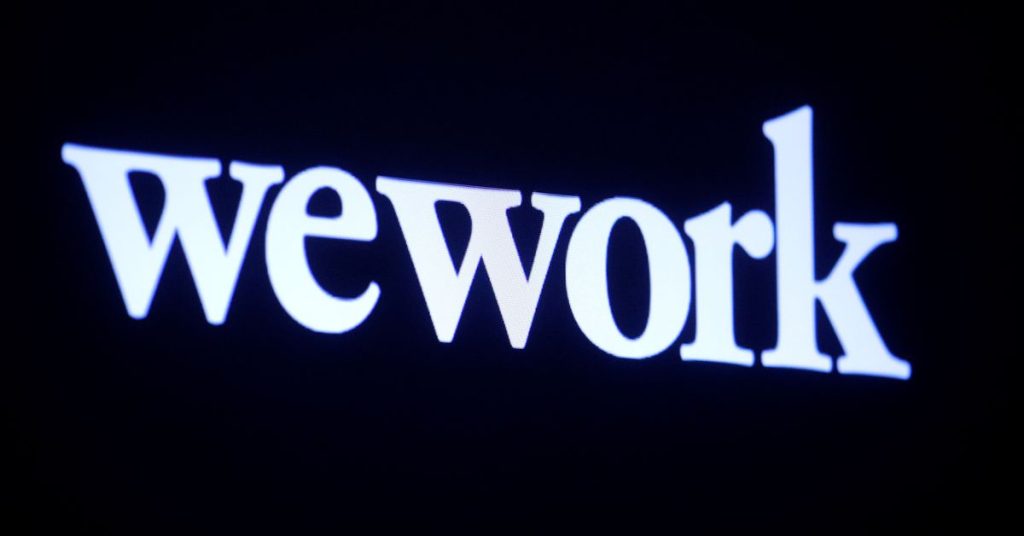Aug 9 (Reuters) – WeWork (WE.N) shares approached zero on Wednesday after the one-time startup darling warned it could go bankrupt in a stunning reversal of fortune for a company that was once privately valued at $47 billion.
The SoftBank-backed company has been in turmoil ever since its plans to go public in 2019 imploded after investors recoiled at its hefty losses, corporate governance lapses and the management style of then founder-CEO Adam Neumann.
WeWork’s woes did not abate in subsequent years. It finally managed to go public in 2021 at a much-reduced valuation, but it has never turned a profit. Its major backer, Japanese conglomerate SoftBank, sunk tens of billions to prop up the startup, but the company has continued to lose money.
“WeWork was perhaps the most overhyped startup of recent years,” said Steve Clayton, head of equity funds at Hargreaves Lansdown.
Shares of the company closed 38.5% lower at 12 cents on Wednesday.
Since its debut through a blank-check merger in October 2021, WeWork’s shares have lost nearly all of their value, and were trading on Wednesday at 13 cents for a valuation of roughly $260 million. Numerous executives have departed, including CEO Sandeep Mathrani in May and three board members this week.
The search for a new CEO is on, WeWork said on Tuesday.
The company’s business model involves taking long-term leases and renting out spaces for a short term. It expanded rapidly over the years, but the global coronavirus pandemic made shared office space less appealing.
The WeWork logo is displayed on a screen during the company’s IPO on the floor of the New York Stock Exchange (NYSE) in New York City, U.S., October 21, 2021. REUTERS/Brendan McDermid/File photo
“Fewer and fewer companies from mature large-cap businesses to startups are willing to enter into long-term leases for geographically fixed spaces,” interim CEO David Tolley said on an analyst call on Wednesday.
The ongoing problems are a black eye for SoftBank, which kept pouring money into the company over the last several years. That company’s head, Masayoshi Son, had personally backed Neumann, and bailed out WeWork in 2019 with $10 billion following the botched IPO.
SoftBank took billions of dollars in losses in the aftermath of the WeWork investment. Son subsequently expressed regret over his support of the company, saying that his “judgment was poor in many ways and I am reflecting deeply on that.”
In March, WeWork reached a deal to cut debt by about $1.5 billion and extend the date of some maturities to save cash.
Cost cuts helped WeWork report a smaller net loss of $349 million in the second quarter from $577 million a year ago, but it still burned through $646 million in cash in the first six months of the year. It had $205 million in hand as of the end of June.
“Flexible workspaces have a future in the office ecosystem, but WeWork, in its current state, may not,” BTIG analysts wrote on Wednesday as they downgraded the stock to “neutral.”
WeWork said it was planning to shore up liquidity by cutting rent and tenancy costs, controlling expenses and reducing member churn.
The company’s India division said the bankruptcy warning would not affect that unit.
Reporting by Ananta Agarwal, Chavi Mehta, Shivansh Tiwary, Abhijith Ganapavaram, additional reporting by Amruta Khandekar in Bengaluru;
Editing by Sriraj Kalluvila, Arun Koyyur and Anil D’Silva
Our Standards: The Thomson Reuters Trust Principles.

